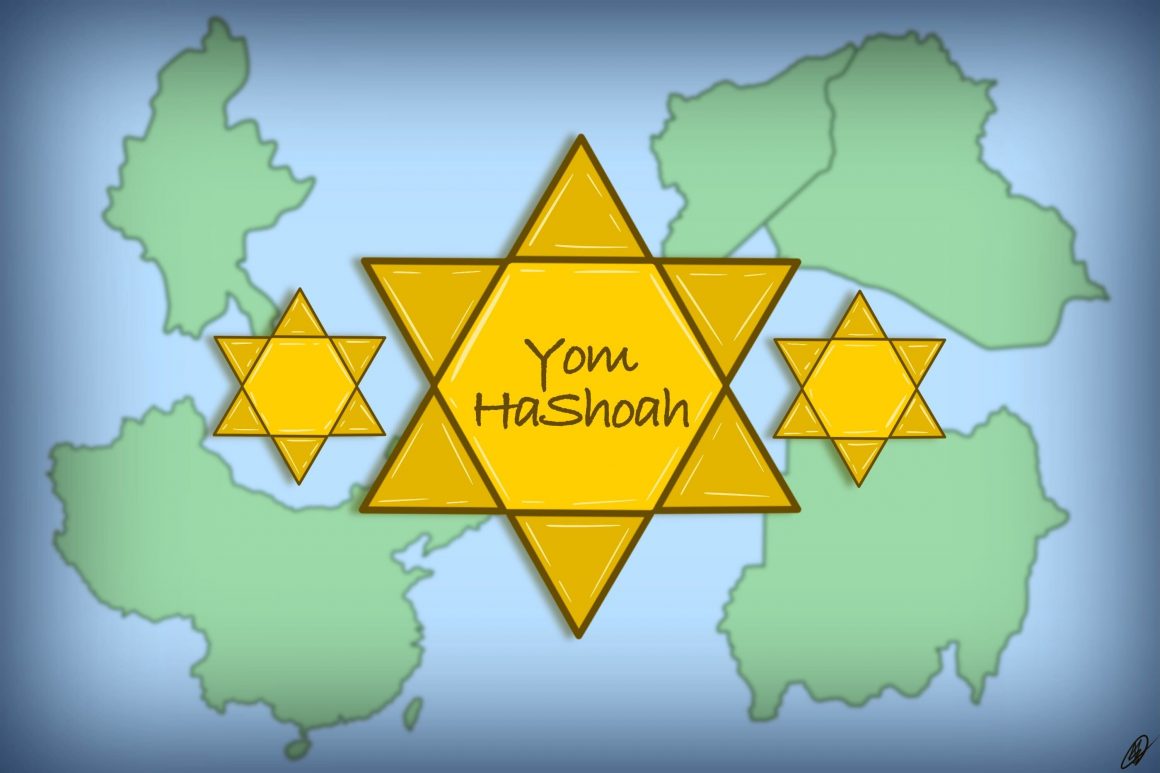
International Holocaust Day of Remembrance: ‘Never again’ is as relevant as ever
By Logan Jaspers, January 27 2022—
Growing up Jewish, we’re taught from a young age to have a sombre relationship with the Holocaust. It’s made clear to us the Holocaust must never be forgotten and is something that must never happen to us again. While few have scholarly expertise in the Holocaust, it is an event that even the most sheltering Jewish parents make sure to discuss at length with their children.
Simply put, the Holocaust is an inseparable part of Jewish life, culture and conscience — it is the event that defines the way Jews both in Israel and the diaspora view the world.
For these reasons, the Holocaust isn’t nearly so central to everyone else. However, this doesn’t excuse ignorance of the Holocaust altogether. Over the past few years, some media have sounded alarms over how poor the knowledge of the Holocaust is among youth. Mainstream outlets like NBC and The Guardian covered a poll conducted on behalf of the Claims Conference which found that American Gen Z and Millennials have troublingly low knowledge of basic Holocaust facts.
Sixty-three per cent of respondents were unaware of the number of Jews murdered during the Holocaust, forty-eight per cent couldn’t name a concentration camp and — most outrageously — eleven per cent blamed Jews for the Holocaust. Other surveys found Canadian, Austrian and French youth don’t possess much better Holocaust knowledge either.
A blanket condemnation of an age group that I belong to is unproductive. Maybe I’m imbued with naïve optimism, but I view this ignorance as mostly being of the most genuine and least heinous variety –— a lot of young people literally just don’t know. The same poll found “80 per cent of all respondents believe that it is important to continue teaching about the Holocaust, in part, so that it does not happen again.”
So there’s an understanding that the Holocaust is important but — as the previous findings show — there isn’t an understanding about why it’s important.
The Holocaust is more than another topic in history class. It is the capstone of a millennia’s worth of anti-Semitism that was volcanically brought to the surface by European totalitarianism. Of course, the Holocaust was not the 20th century’s first genocide –— genocides against the Herero and Nama peoples, Armenians and Ukrainians were all disastrous — leaving collective scars that remain to this day.
What makes the Holocaust unique was how it was an adaptation of genocidal practices to an industrial context that enabled the murder of millions of Jews, Slavs, Roma, homosexuals, Jehovah’s Witnesses and the disabled on an unprecedented scale.
This is why days like the International Holocaust Day of Remembrance, or Yom HaShoah, are commemorated — the Holocaust was humanity’s capacity for inhumanity realized to an extent never seen previously. It is something that should never happen again. To anyone.
Clearly, much of the world has not internalised this lesson. From the massacres in Rwanda and Srebrenica in the 1990s, to recent genocidal campaigns against Yazidis, Rohingya, and Uyghurs, the international community has repeatedly failed to intervene against genocide. Unfortunately, notions of realpolitik makes foreign inaction a habit unlikely to change — barring a change in the political interests of members of the international community.
At home, there are a couple things you can do. Firstly, remain perennially vigilant against the conditions that led to the Holocaust happening in the first place. The Hebrew term for the Holocaust is Shoah which translates to “the catastrophe” in English. Clearly an apt description, but don’t let that make you think a catastrophe can never happen here.
With aspiring autocrats on the ballot in France, Hungary, and Brazil this year, remember democracy is a continuous process. No single election guarantees democracy’s survival and, as the last few years in the United States have shown, institutions we take for granted can be easily twisted.
The fight for democracy and against its opponents must be conducted tirelessly. I don’t mean to reduce the causes of the Holocaust down to “Germans didn’t vote hard enough,” but your vote matters. Use it wisely.
Secondly, do your best to humanize the Holocaust’s victims. In more normal times, I’d recommend attending a talk by a Holocaust survivor. The Holocaust does not merely exist on the pages of books –— it is still within living memory, though these opportunities to meet those who lived through it are shrinking.
Go to places like Yad Vashem, or the Holocaust Memorial in Berlin, or even see one of the camps. Research the lives and stories of those who experienced it. This is the ultimate way to repudiate fascist dehumanization, by coming face to face with the anguish of survivors and through a celebration of their humanity of which they were unjustly deprived.
This article is a part of our Voices section.
